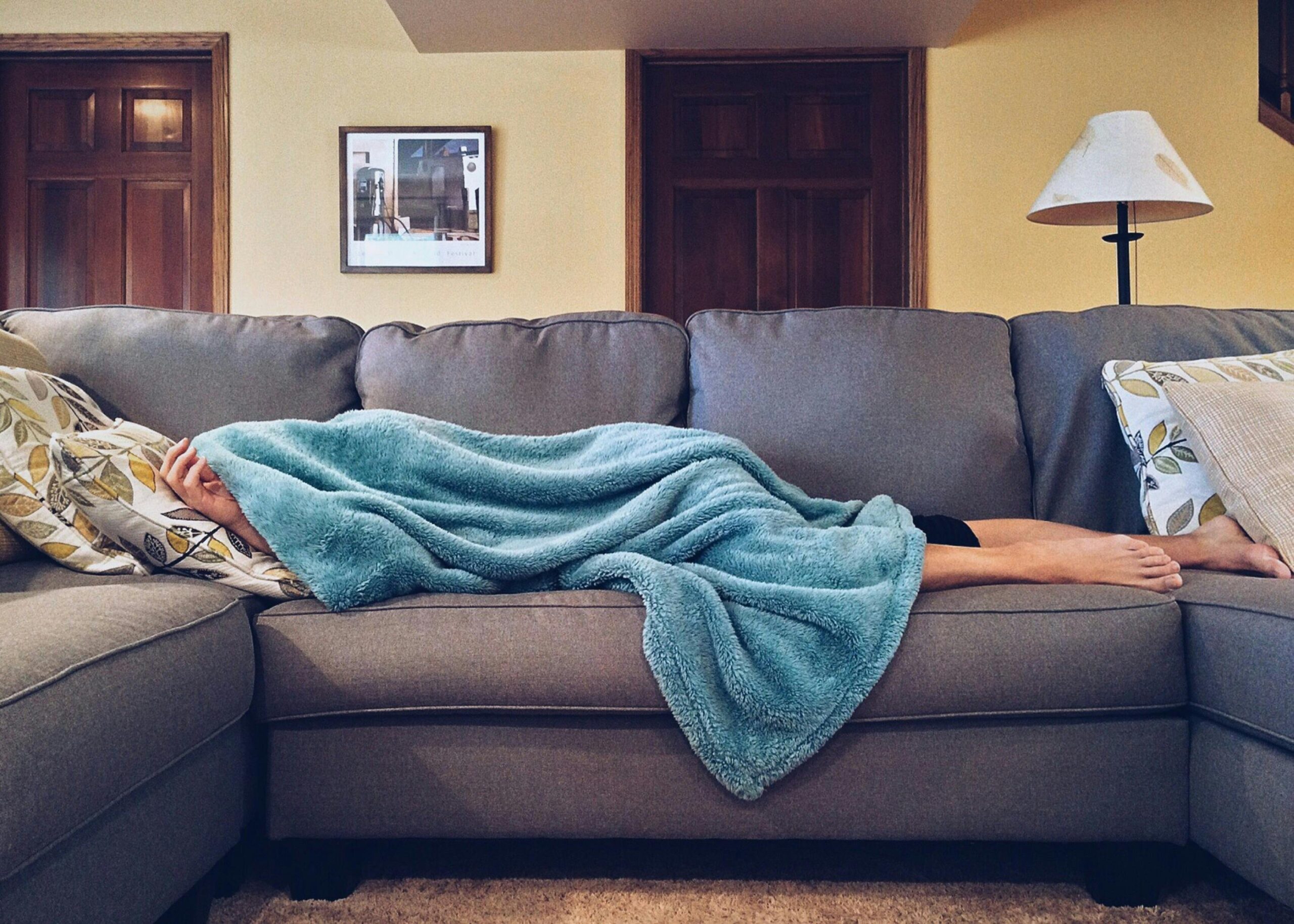A clean, fresh-smelling couch is essential for maintaining a pleasant and welcoming home environment. Over time, couches can absorb various odors from pets, food spills, sweat, and more, leading to unpleasant smells that are challenging to remove.
This comprehensive guide will provide you with detailed instructions on how to eliminate these odors effectively, using a combination of general cleaning methods, natural remedies, commercial products, and preventative measures. By following these steps, you can ensure that your couch remains clean, fresh, and odor-free for years to come.
Understanding the Source of Odors
Identifying the source of the odor is the first step in effectively eliminating it. Here are some common sources of couch odors and how they can impact your furniture:
Pet Odors
Pets are one of the most common sources of couch odors. They can leave behind fur, dander, and sometimes even urine, which can penetrate deep into the couch fibers. The smell of pet urine is particularly challenging to remove because it contains ammonia, which has a strong and lingering odor. Additionally, pet fur and dander can accumulate on the couch, leading to a musty smell over time.
Food and Drink Spills
Spilled food and beverages can cause lingering odors if not cleaned up promptly and thoroughly. For instance, milk can sour and emit a foul smell, while spilled wine or juice can ferment and produce a musty odor. Food particles can also become trapped in the fabric and cushions, leading to a buildup of bacteria that causes unpleasant smells.
Body Oils and Sweat
Regular use of the couch can lead to the accumulation of body oils and sweat, especially on fabric couches. Over time, these can create a distinct, unpleasant smell that is difficult to remove without proper cleaning. Sweat and body oils can also attract dirt and bacteria, exacerbating the odor problem.
Mold and Mildew
Moisture trapped in the couch can lead to mold and mildew growth, which causes a musty, damp smell. This is particularly common in humid environments or if the couch has been exposed to water or high humidity. Mold and mildew not only produce unpleasant odors but can also be harmful to your health.
Smoking
Cigarette smoke can penetrate deeply into the fabric and padding of a couch, leaving behind a persistent odor that is difficult to remove. The tar and nicotine from the smoke can also cause discoloration. Even if you don’t smoke indoors, the smell can transfer from your clothes to the couch.
General Cleaning Methods
Maintaining a regular cleaning routine is crucial for keeping your couch free from odors. Here are some general cleaning methods you can use:
Vacuuming
Regular vacuuming is essential for maintaining a clean and odor-free couch. Use a vacuum cleaner with upholstery attachments to remove dust, pet hair, and debris from the surface and crevices of the couch. Make sure to vacuum all sides of the cushions and underneath them as well. This not only helps in removing visible dirt but also prevents the buildup of particles that can contribute to odors over time. For best results, vacuum your couch at least once a week.
Spot Cleaning
For minor spills and stains, spot cleaning is effective. Use a clean cloth or sponge, mild detergent, and water to gently blot the stained area. Avoid rubbing, as this can push the stain deeper into the fabric. If the spill is still wet, blot it with a clean cloth to absorb as much liquid as possible before applying the cleaning solution. Spot cleaning should be done as soon as possible to prevent the stain from setting in.
Deep Cleaning
Steam Cleaning
Steam cleaning is a powerful method for removing odors and deep-seated dirt from your couch. A steam cleaner uses hot water vapor to penetrate the fabric and dissolve dirt, which is then vacuumed away. Be sure to follow the manufacturer’s instructions and test a small, inconspicuous area first to ensure the fabric can handle the steam. Steam cleaning is particularly effective for fabric couches and can help kill bacteria and allergens that may be causing odors. Regular steam cleaning can significantly extend the life of your couch and keep it smelling fresh.
Shampooing
Upholstery shampooers are another option for deep cleaning. These machines apply a cleaning solution to the fabric, agitate it to loosen dirt, and then extract the dirty solution. Choose a shampoo that is appropriate for your couch’s fabric type. Upholstery shampoos are formulated to clean without leaving a residue that can attract more dirt. Make sure to allow the couch to dry completely after shampooing to prevent mold and mildew growth. For best results, shampoo your couch every six months to a year, depending on usage.
Natural Remedies
Using natural remedies can be an effective and eco-friendly way to eliminate odors from your couch. Here are some popular natural methods:
Baking Soda
Baking soda is a natural odor absorber. Sprinkle a generous amount of baking soda over the entire couch, including the cushions, and let it sit for at least 15 minutes (or overnight for strong odors). Vacuum up the baking soda thoroughly. Baking soda works by neutralizing odors rather than masking them, making it a highly effective solution for various smells. For stubborn odors, you can repeat the process or leave the baking soda on for a longer period.
White Vinegar
White vinegar is effective for neutralizing odors. Mix equal parts white vinegar and water in a spray bottle and lightly mist the couch. Allow it to air dry completely. The vinegar smell will dissipate as it dries, taking the unwanted odors with it. White vinegar is particularly useful for removing pet odors and musty smells from mold and mildew. It can also help disinfect the fabric, killing odor-causing bacteria.
Activated Charcoal
Activated charcoal is excellent for absorbing odors. Place a few bowls of activated charcoal around the couch or in the room to help absorb lingering smells. You can also place activated charcoal bags directly on the couch. Activated charcoal is highly porous and can trap odor-causing molecules, making it an effective long-term solution. Replace the charcoal regularly to maintain its effectiveness.
Essential Oils
Essential oils not only mask odors but also provide a pleasant fragrance. Mix a few drops of essential oil with water in a spray bottle and lightly mist the couch. Popular choices include lavender, eucalyptus, and lemon. Essential oils have natural antibacterial properties, which can help eliminate odor-causing bacteria. Be sure to test a small area first to ensure the oil does not stain the fabric.
Commercial Products
There are various commercial products specifically designed to eliminate couch odors. These products often contain enzymes that break down odor-causing substances, leaving your couch smelling fresh. Here are some types of commercial products you can use:
Upholstery Deodorizers
Upholstery deodorizers are sprays or powders that are designed to neutralize odors on fabric surfaces. They work by chemically interacting with the odor molecules to neutralize them. Follow the instructions on the label for the best results. These products are easy to use and can provide immediate relief from unpleasant smells.
Fabric Refreshers
Fabric refreshers are sprays that can be used on couches and other upholstered furniture to eliminate odors and leave a pleasant scent. These products often contain antimicrobial agents that kill bacteria and other microorganisms that cause odors. Fabric refreshers are ideal for quick touch-ups between deep cleanings.
Enzyme Cleaners
Enzyme cleaners are particularly effective for pet odors and organic stains. These products contain enzymes that break down the proteins and other organic materials that cause odors. Follow the instructions on the label for proper use. Enzyme cleaners are a great choice for households with pets, as they can effectively remove urine, vomit, and other biological stains.
Preventing Future Odors
Taking preventative measures can help keep your couch smelling fresh and clean for longer. Here are some tips for preventing future odors:
Use Couch Covers
Couch covers are an effective way to protect your couch from spills, pet hair, and other sources of odors. They are easy to remove and wash, making it simpler to keep your couch fresh. Choose covers made from machine-washable materials for easy maintenance. Couch covers can also add a layer of protection against wear and tear, extending the life of your furniture.
Regular Cleaning Schedule
Implement a regular cleaning schedule that includes vacuuming, spot cleaning, and occasional deep cleaning to prevent odors from building up over time. Consistency is key to maintaining a fresh-smelling couch. A regular cleaning routine will also make deep cleaning easier and more effective.
Pet Care
Regularly groom and bathe your pets to reduce the amount of fur and dander they shed on the couch. Consider using pet-specific furniture sprays to neutralize pet odors. Train pets to stay off the couch, if possible, or provide them with their own designated spot. Keeping your pets clean and well-groomed can significantly reduce the amount of odor they contribute to your home.
Proper Ventilation
Ensure your living area is well-ventilated to help dissipate odors. Open windows and use fans to circulate fresh air regularly. Good ventilation can prevent the buildup of musty and stale odors. Using air purifiers with activated carbon filters can also help remove odors from the air.
Avoid Eating on the Couch
Try to avoid eating and drinking on the couch to prevent spills and stains that can lead to odors. If eating on the couch is unavoidable, use trays and be mindful of spills. Encourage family members to eat at the dining table or designated eating areas.
Using Air Purifiers
Air purifiers with activated carbon filters can help remove odors from the air, which can, in turn, help keep your couch smelling fresh. Place an air purifier in the room where the couch is located for the best results. Regularly replace the filters to ensure the air purifier is working effectively.
FAQs About Removing Smells From Couches
Can I use a carpet cleaner on my couch?
Carpet cleaners can be used on some couches, but it’s important to check the manufacturer’s instructions for your specific couch fabric. Always test a small, inconspicuous area first to ensure the fabric can handle the cleaner. Some carpet cleaners may be too harsh for delicate upholstery fabrics.
How often should I clean my couch?
The frequency of cleaning depends on usage. For households with pets or small children, more frequent cleaning may be necessary. As a general rule, vacuum your couch weekly and perform deep cleaning every few months. Spot clean as needed to address spills and stains promptly.
What should I do if my couch still smells after cleaning?
If your couch still smells after cleaning, try repeating the cleaning process. You may also need to use a stronger odor eliminator or consult a professional upholstery cleaner. Persistent odors may indicate a deeper problem, such as mold or mildew, that requires professional attention.
Can I use bleach on my couch?
Bleach is not recommended for most couch fabrics as it can cause discoloration and damage. Opt for gentler cleaning solutions or consult a professional. If you need to disinfect your couch, use a mild disinfectant spray that is safe for upholstery.
Are there any natural alternatives to commercial odor eliminators?
Yes, natural alternatives such as baking soda, white vinegar, activated charcoal, and essential oils can be very effective in eliminating odors. These natural remedies are often safer for households with pets and small children.
Conclusion
Maintaining a fresh and odor-free couch requires regular cleaning and attention to potential sources of odors. By using the methods and tips outlined in this guide, you can effectively remove unwanted smells and keep your couch in top condition.
Regular maintenance, combined with prompt action on spills and stains, will ensure your couch remains a comfortable and pleasant place to relax. Taking preventative measures will also help you avoid future odors, ensuring your living space stays fresh and inviting.
Whether you prefer natural remedies, commercial products, or a combination of both, there are plenty of options available to help you keep your couch smelling clean and fresh.



